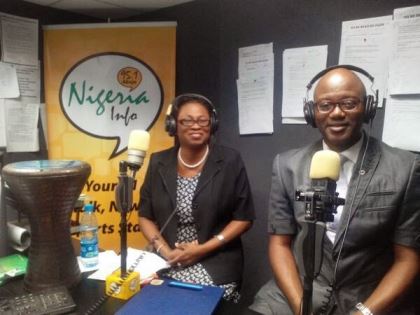At least our colleagues at the Association for Reproductive and Family Health took the advocacy campaign on TB to radios stations around the country.
You may not remember that in our usual way in Nigeria, TB was declared a “national emergency” in June 2006 after which an “emergency plan” for the control of TB in Nigeria was developed. Targets were agreed upon – including; by 2015, to reduce TB prevalence and death rates by 50% relative to the 1990 level. Carrying out well managed surveillance would be the ideal way of measuring the burden of diseases, but in Nigeria we know how challenging this can be. In its place, the alternative is to carry out surveys. Using primarily donor funds two important surveys have been completed on TB in Nigeria in the past few years; one on the prevalence of TB and one on the prevalence of drug resistant tuberculosis. Despite the completion of these surveys – the reports have not been released! They are said to be awaiting sign-off by the Honourable Minister of Health. They have been awaiting sign off for over two years, waiting for a signature! So what could a survey show that would make it so difficult to release? Could it be that the surveys show that we have a much larger prevalence of TB and MDR TB than we have been made to believe?
Between 2010 and 2011, the Federal Ministry of Health, with support from the World Health Organisation conducted a prevalence survey on Tuberculosis in Nigeria. This WHO map clearly shows that this survey has been conducted in Nigeria. The beginning of the survey was reported with the usual fanfare. The results have been ready for over a year – but they have never been formally released. The question you will be asking is why. Although the final report is still not publicly available, but in one of the well hidden reports on what happened on World TB day, the new Nigerian Minister of State for Health, Dr. Khalif Alhassan is reported to have said that
“…. the recently concluded National TB prevalence survey has (sic) revealed that actual burden (sic) of TB in the country is about three times higher than the current WHO estimates and five times more than what is being notified by the programme”
Multi-drug resistant Tuberculosis (MDR TB) is a form of TB that is much harder to treat and with worse clinical outcomes. Between October 2009 and November 2010, a prospective MDR TB survey was carried out in Nigeria in 30 randomly selected clinics around the country. The prevalence of MDR strains found was 2.9% among new patients and 14.3% among patients that have had TB previously. Of the study participants, 14.95 were HIV positive. These results were presented at the 44th World Union Conference on Lung Health, held in Paris in December 2013. The abstract from this poster and all other abstracts from the conference can be found here.
As far as we know, (an hopefully we will be corrected), neither of these two important reports have been published, either for peer review or as a report. This is the link to the publication page of the National TB and Leprosy Control Programme (NTLCP) – http://ntblcp.gov.ng/index.php/publications.The leadership of the NTLCP that sent in the abstract for the Paris Conference has done the country a huge favour. At least those that know how to dig through the internet can find the information they need while the rest of the country awaits ministerial signatures.
The whole essence of public health is to drive policy that should improve the health of the population. Why are there no more Nigerians asking why this is not happening. Why are we funding the Public Health Department with our tax-payers’s funds when the results of surveys done on our health are never published? Why is the WHO, CDC, etc who supported these studies not insisting that the results be made public to the Nigerian people?
Can this be because TB is often a disease of the poor?
This is the entrance to where patients with TB are treated at my alma mata the University of Nigeria Teaching Hospital Enugu. The infrastructure is worse than a veterinary clinic, yet hard working nurses and colleagues keep it going, despite the odds. Are we not all guilty?
Despite all this, the National TB and Leprosy Control Programme is ably led by Dr Joshua Obasanya. He is one of the brightest and committed colleagues I have met, working in Nigeria. Determined to make the best out of his limited resources – he has tried in his efforts to put TB on the agenda. He led on the formulation of a new National Strategic Plan for Tuberculosis and Leprosy Control (2010-2015). But sadly, some important recommendations in the plan that have not been implemented, including plans to engage more private sector institutions to increase the coverage of TB related services.
It is definitely time that we start asking some hard questions about the state of affairs with some of the biggest public health challenges of our time. TB is definitely is one of them!
P/S. THE LANCET has made a recent complete edition of its journal, focusing on TB completely freely available to readers. Access yours here, so that next time we do not blame our combined inactivity, on a lack of knowledge. When we know – then maybe we can also do something.
As Johann Wolfgang von Goethe is famously quoted to have said; “Knowing is not enough; we must apply. Willing is not enough; we must do.”
Never doubt that a small group of thoughtful committed people can change the world; indeed it is the only thing that ever has…Margaret Mead




